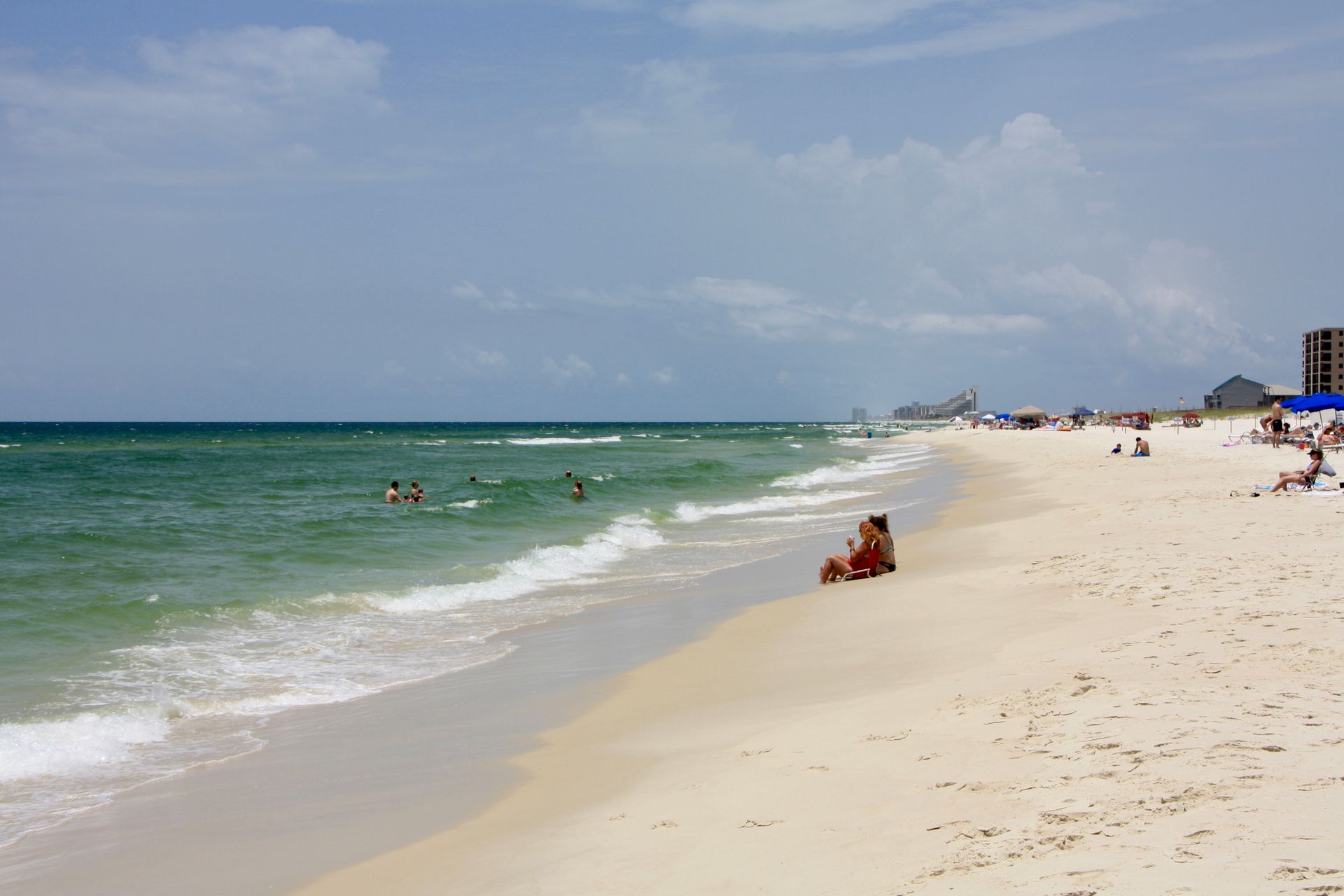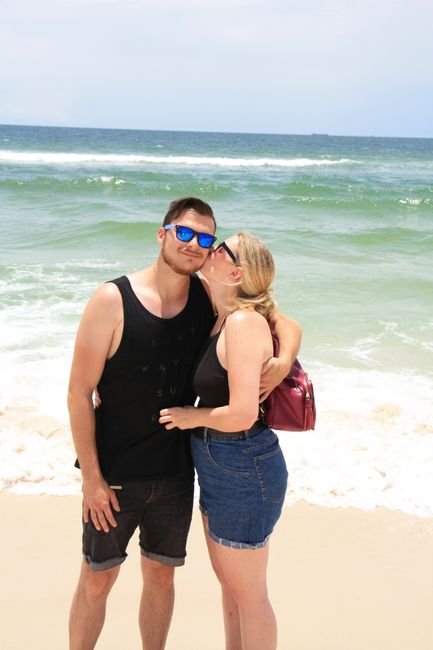Roadtrip Part IV - Banff National Park
Argitaratu: 31.05.2018
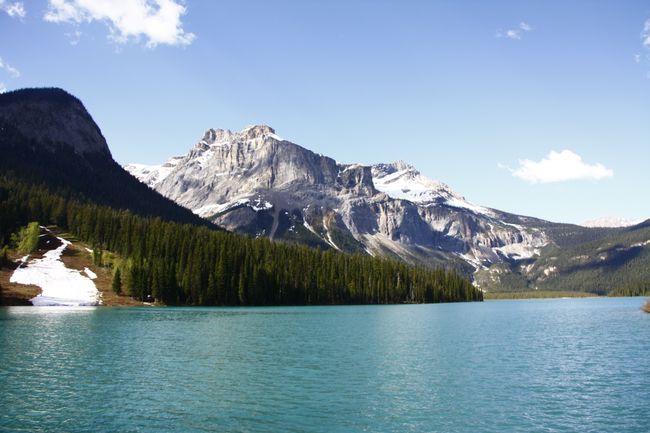
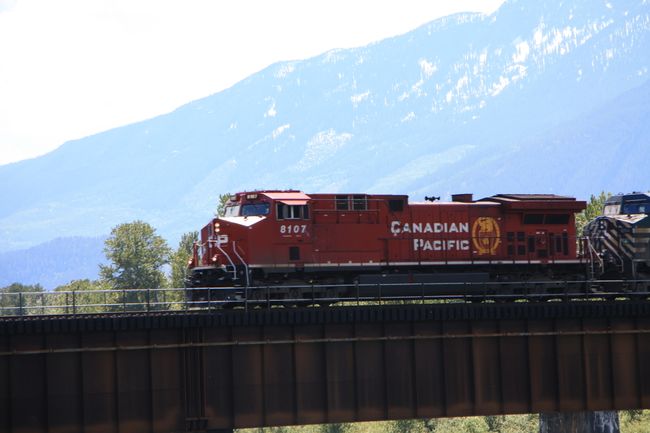
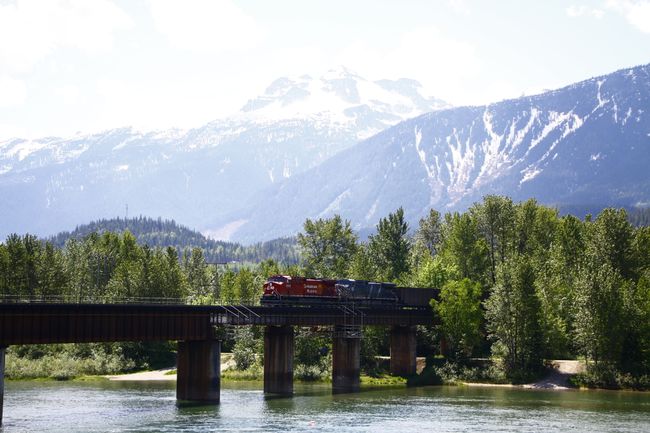
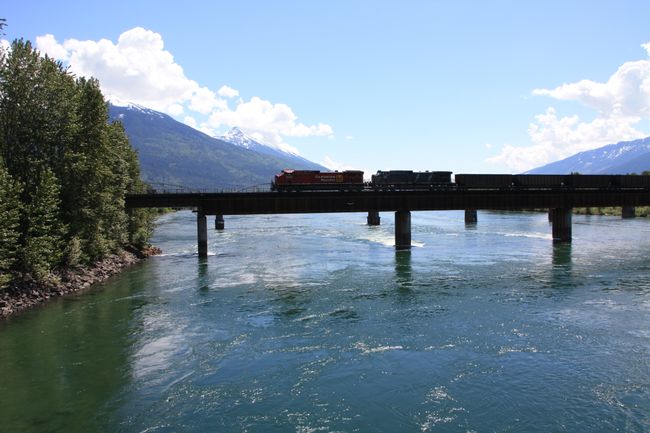
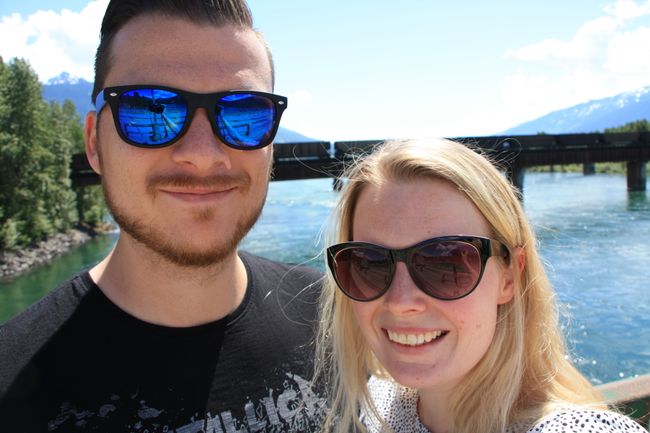
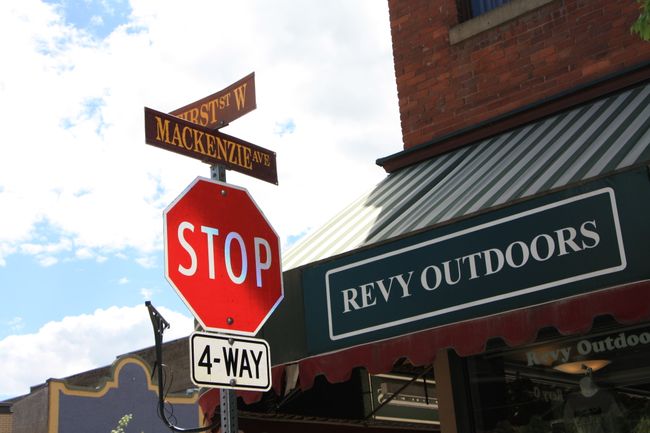
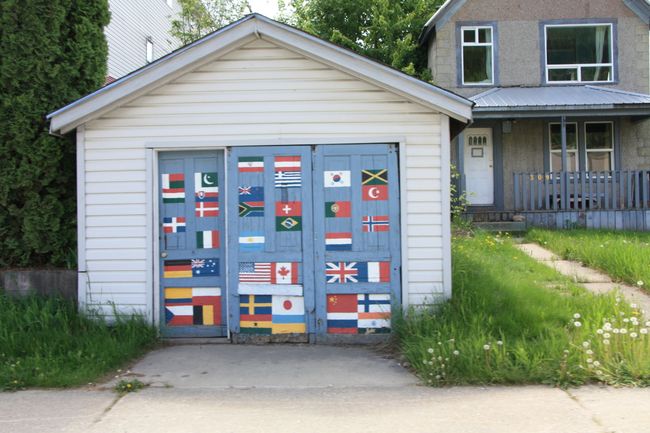
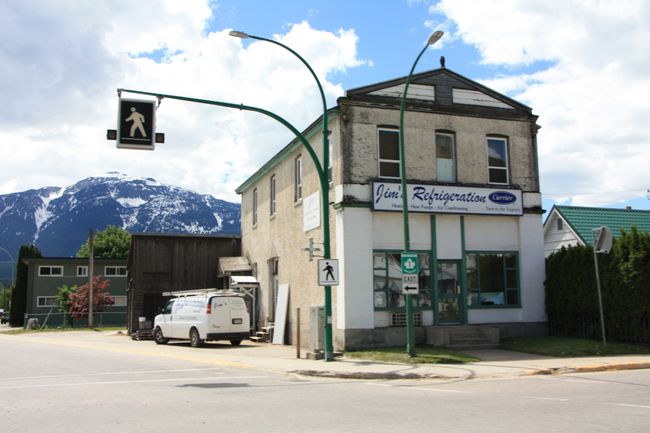
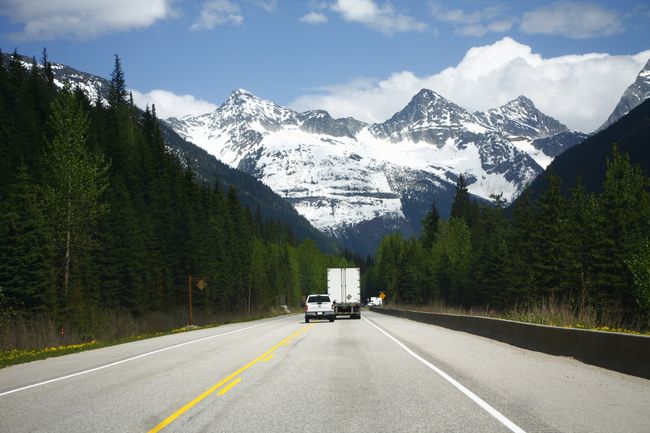
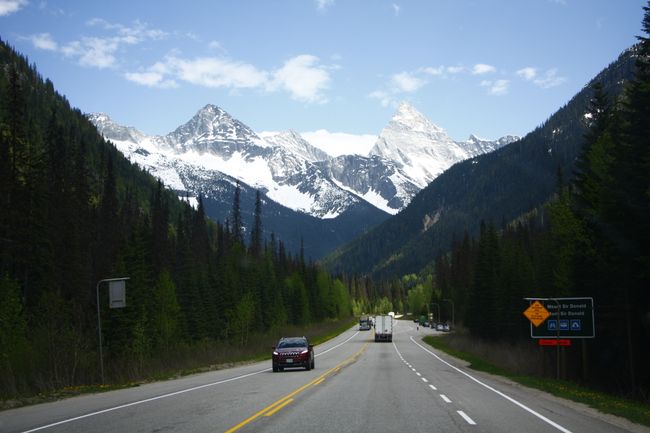
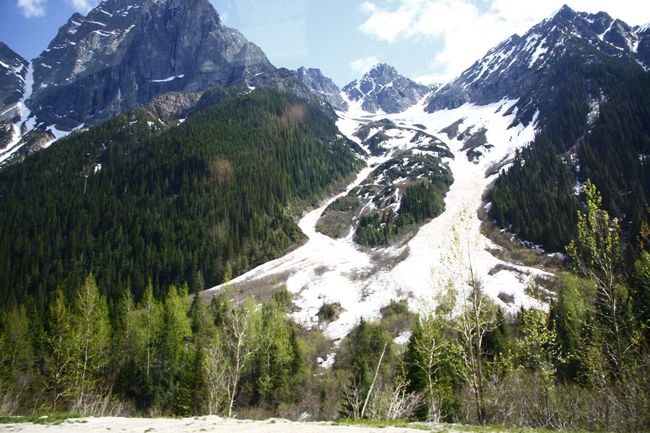
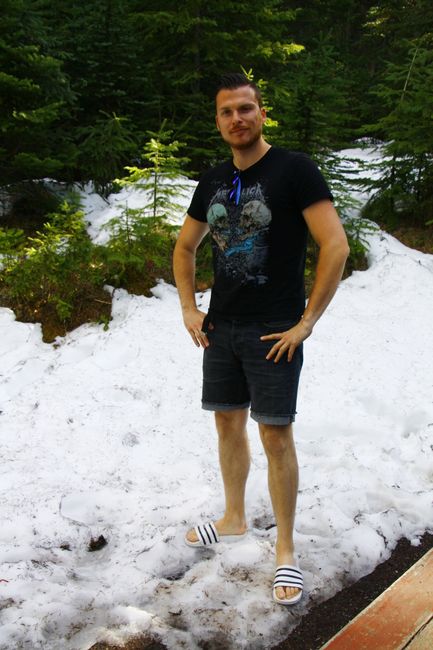
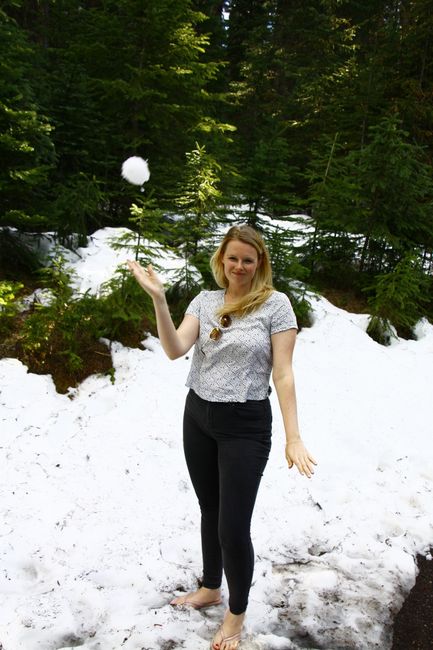
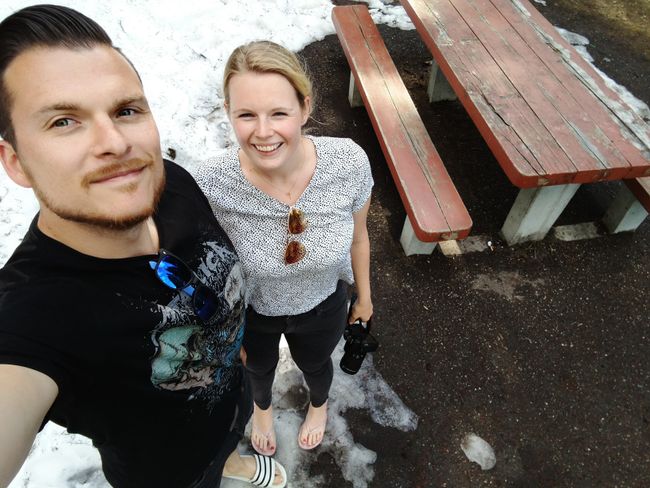
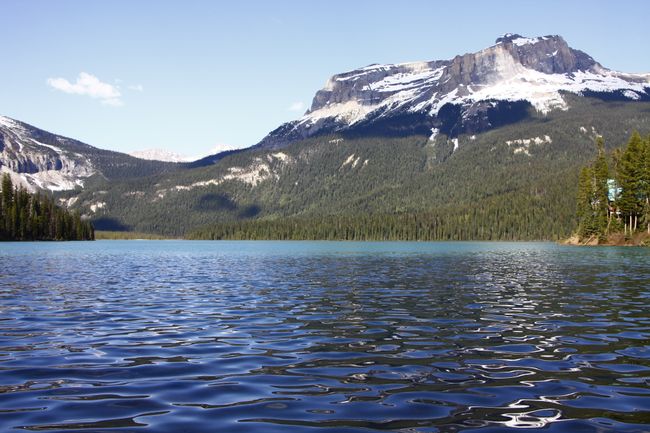
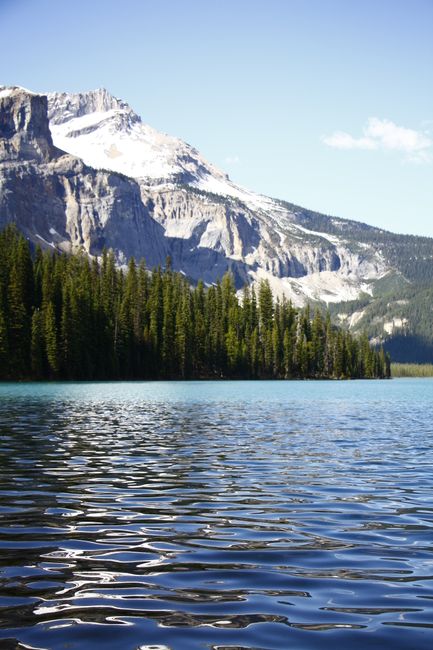
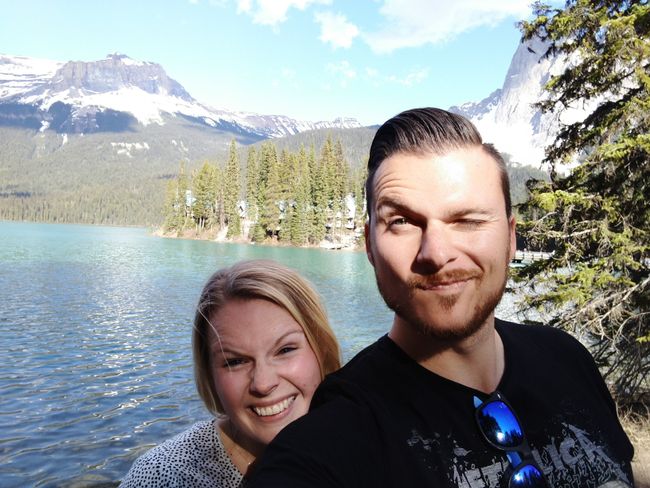
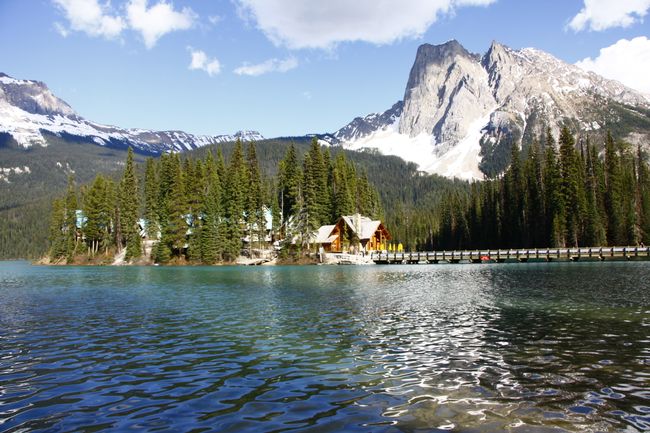
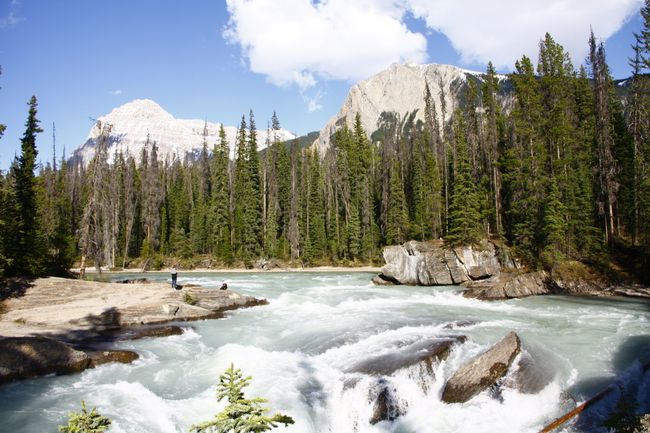
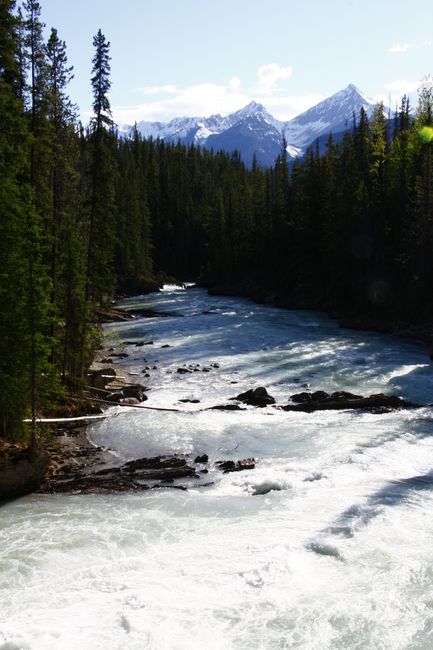
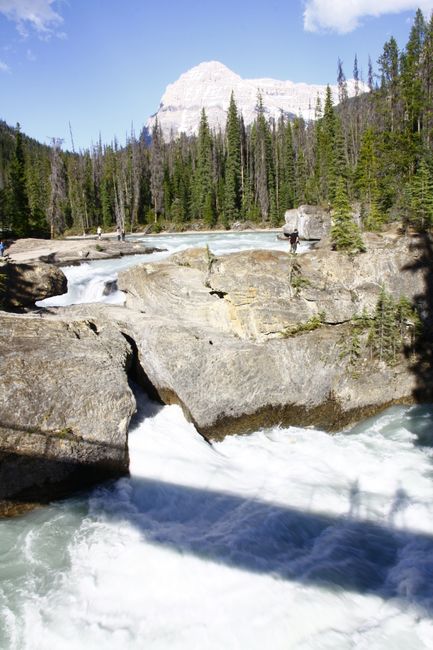
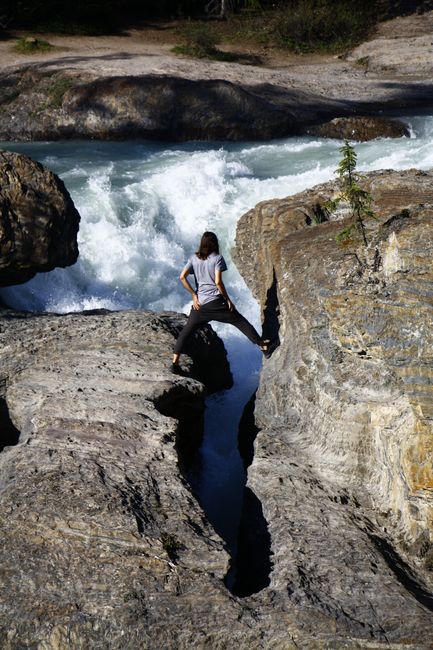
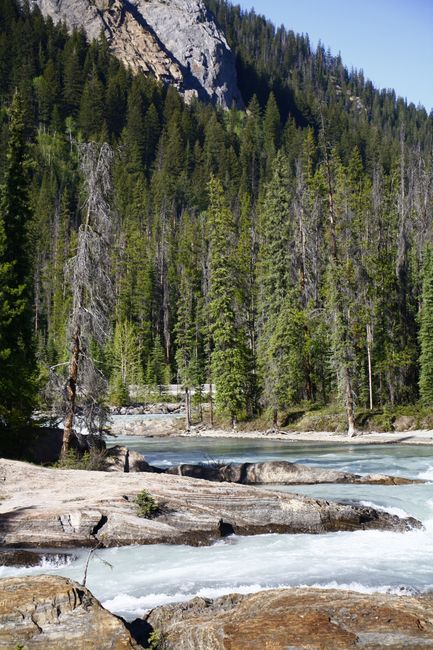
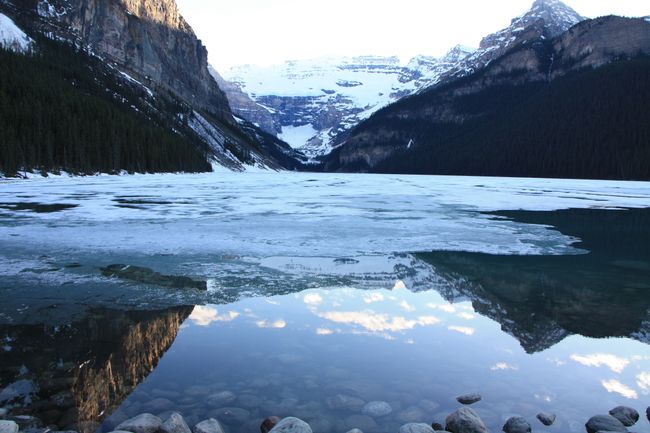
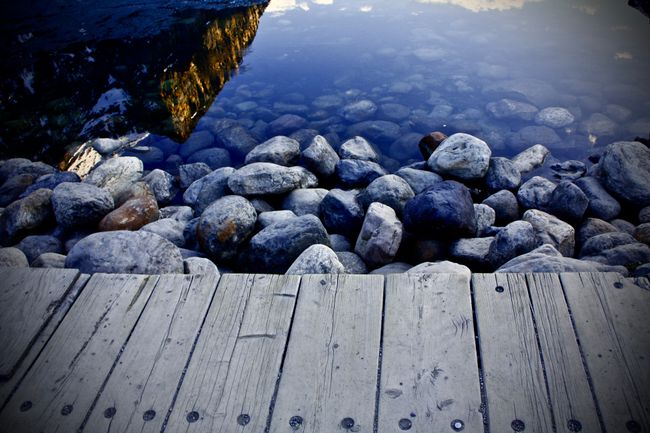
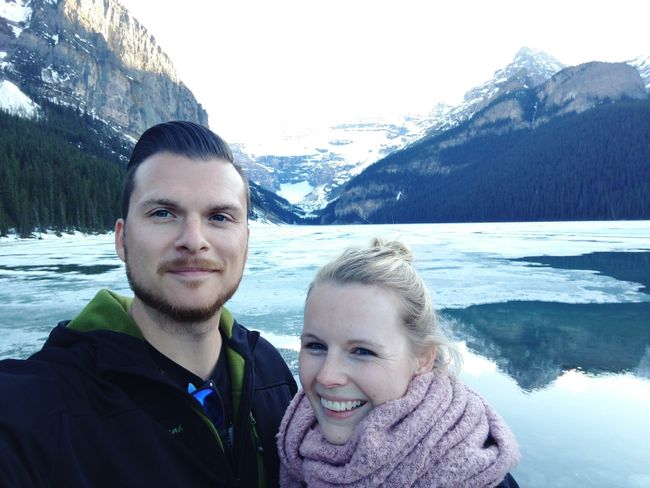
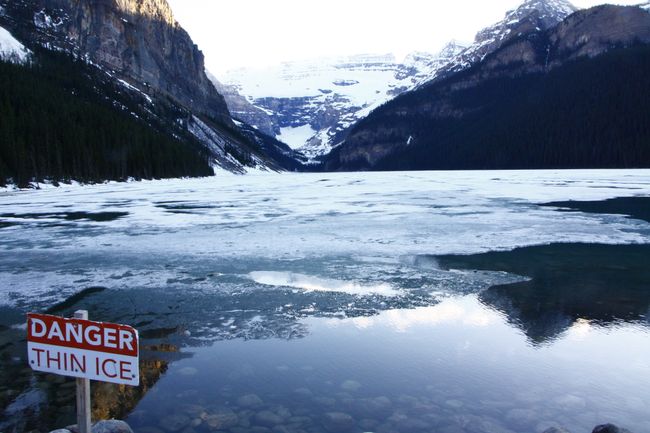
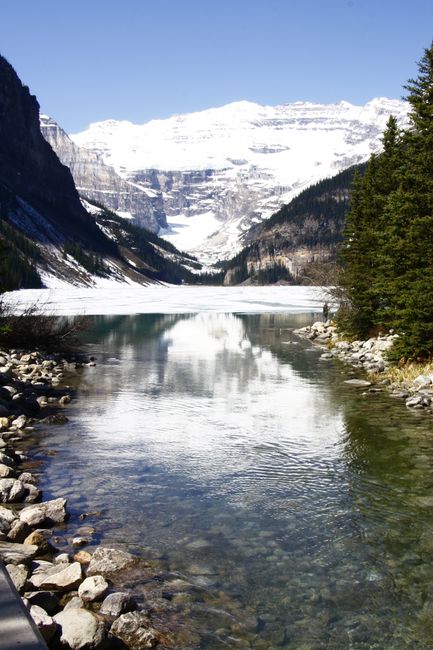
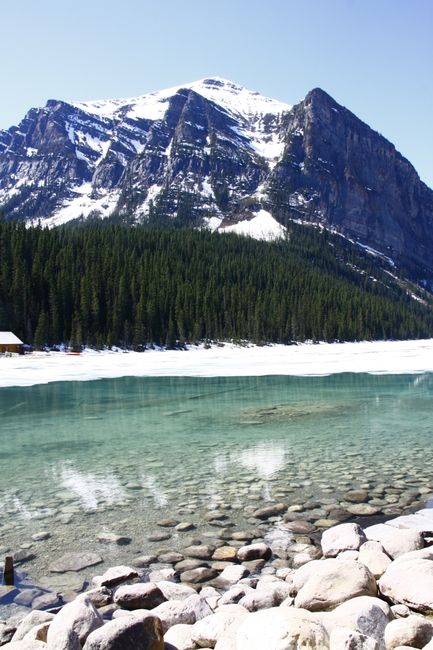
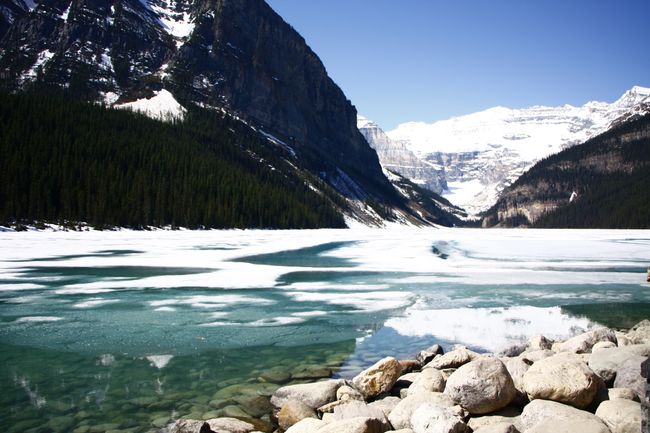
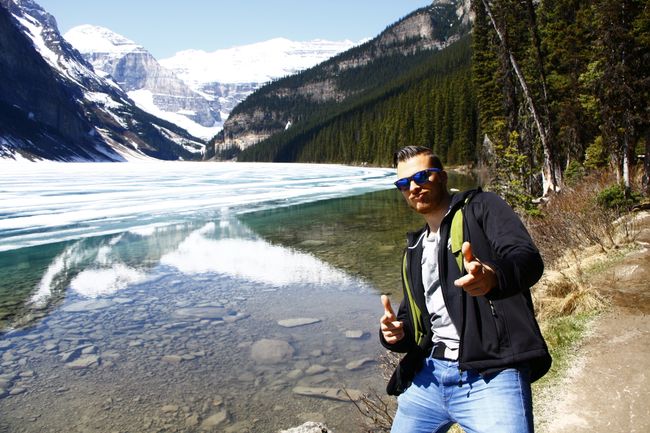
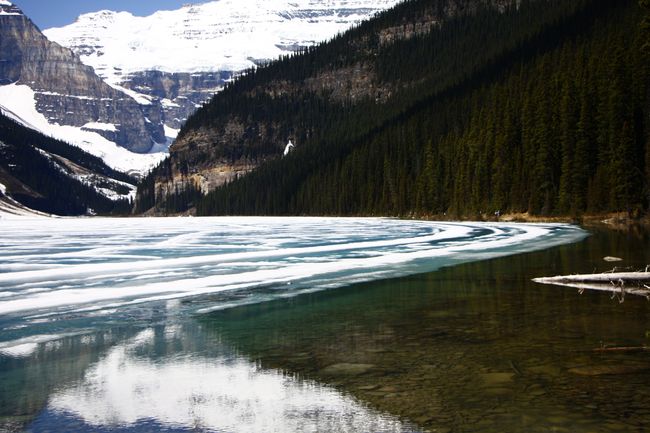
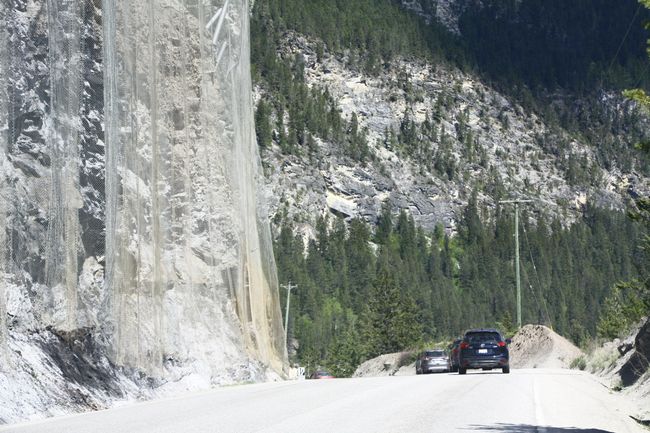
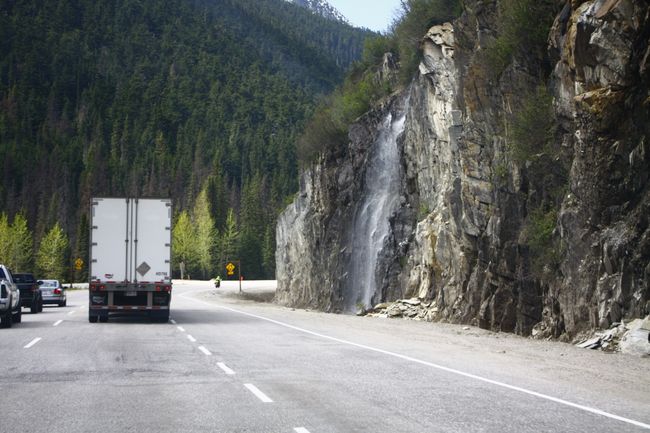
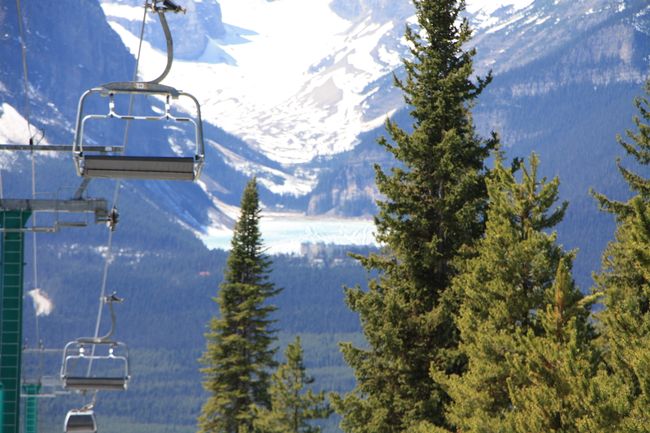
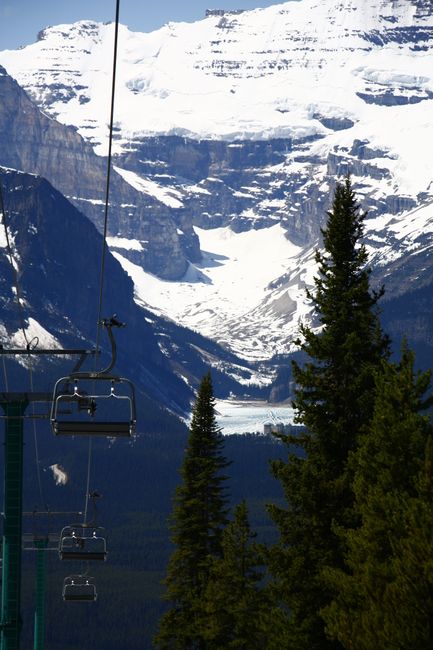
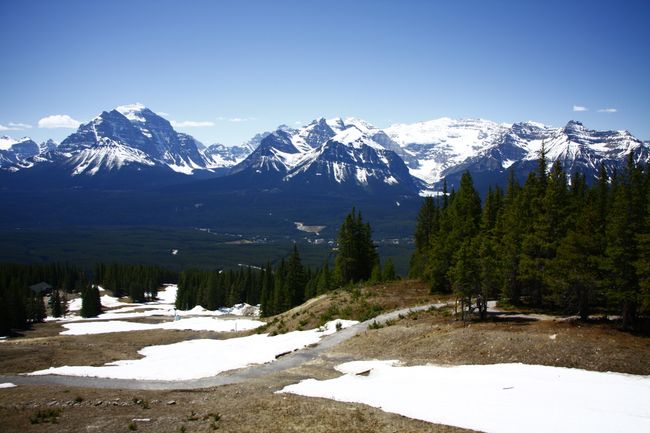
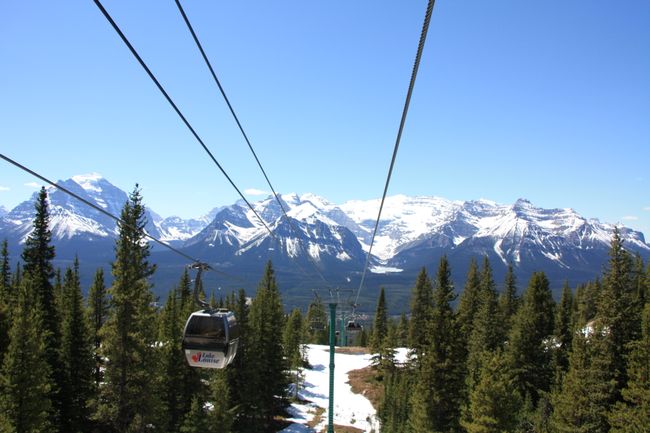
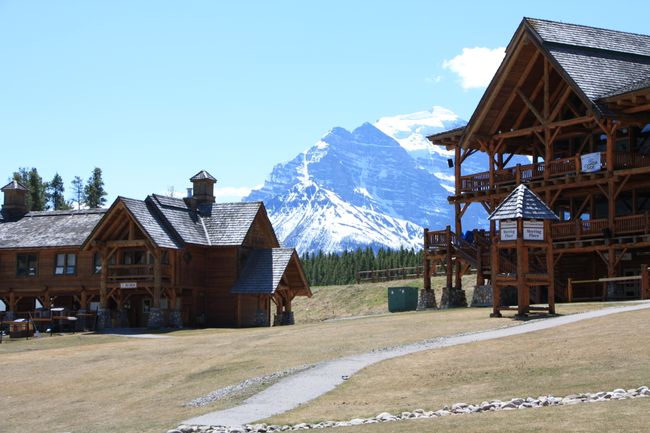
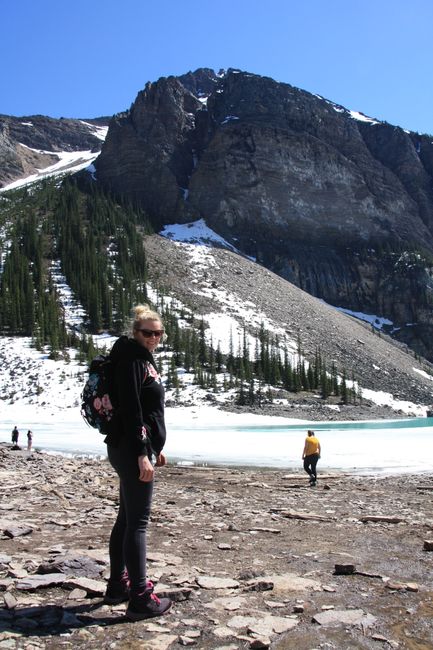
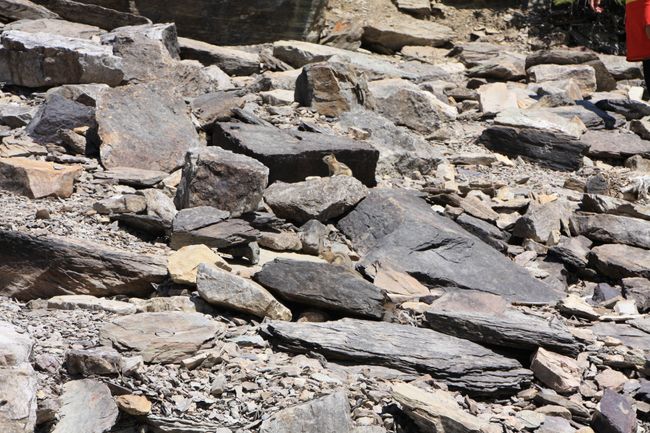
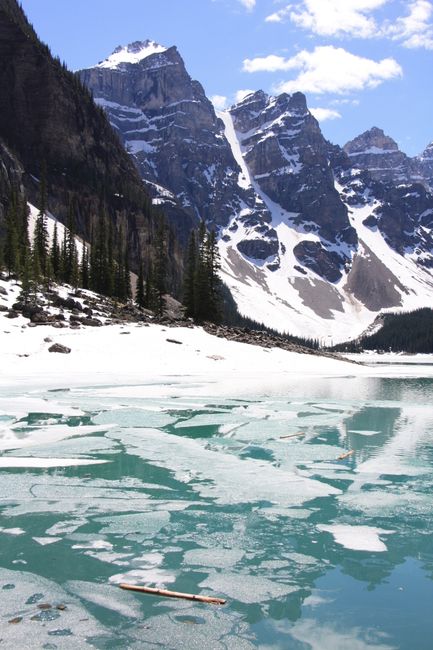
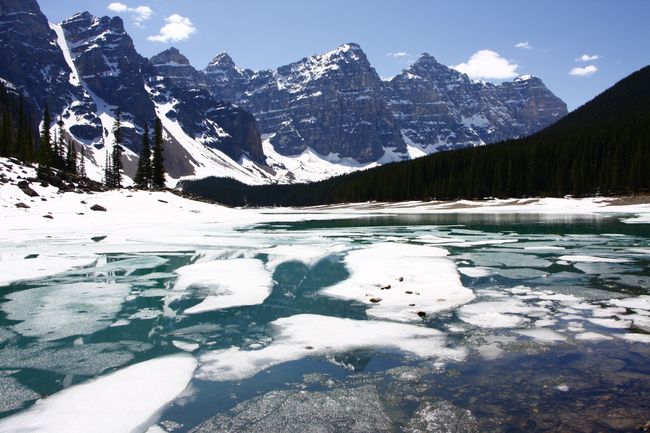
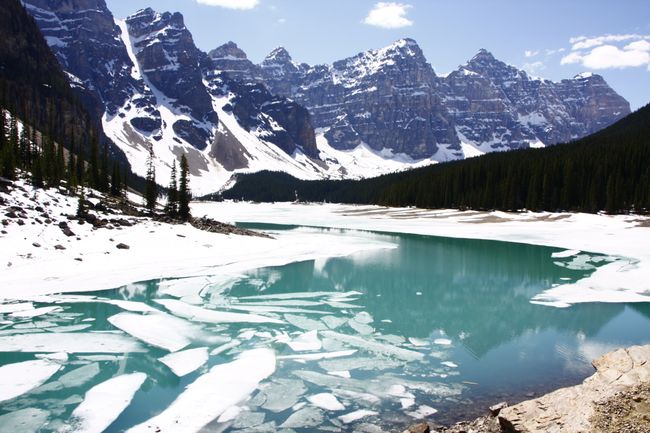
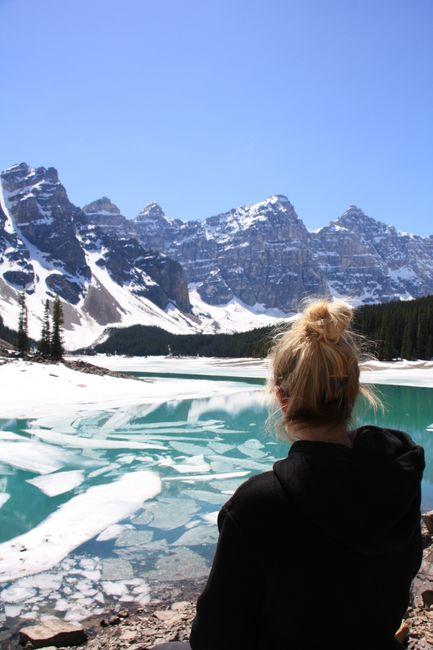
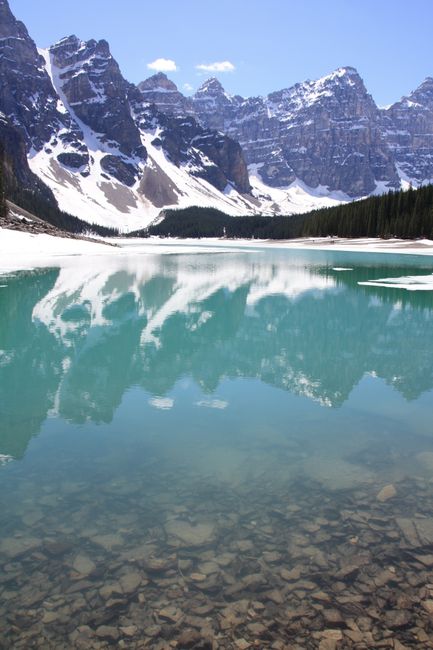
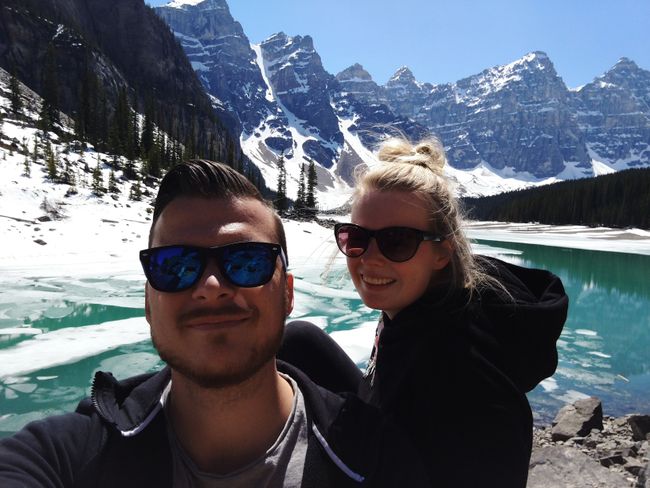
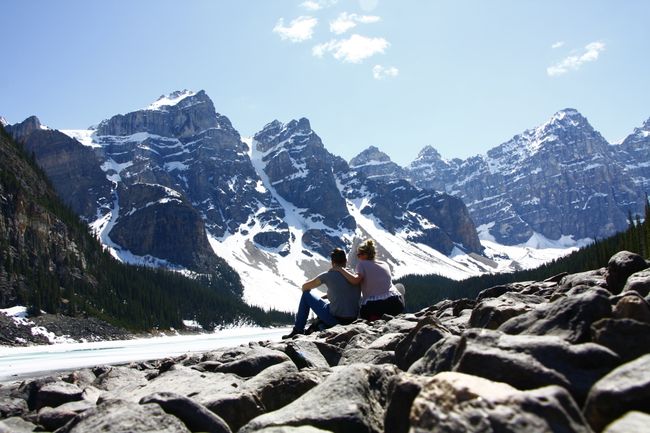
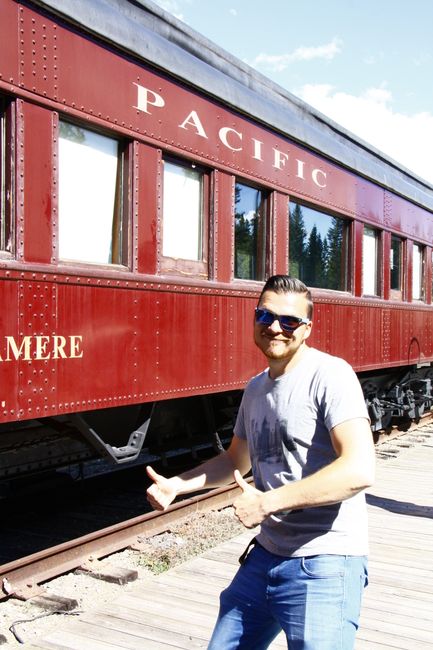
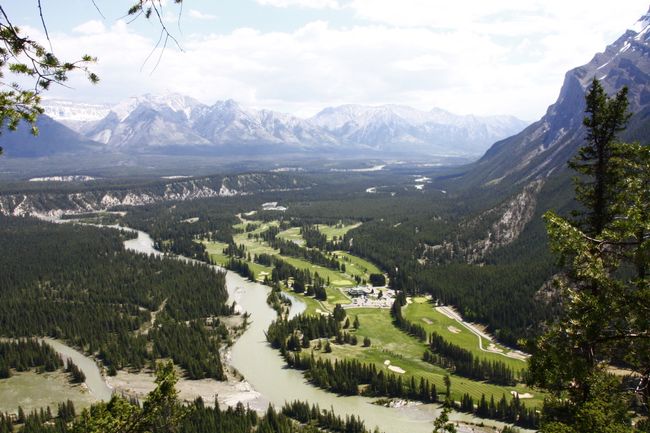
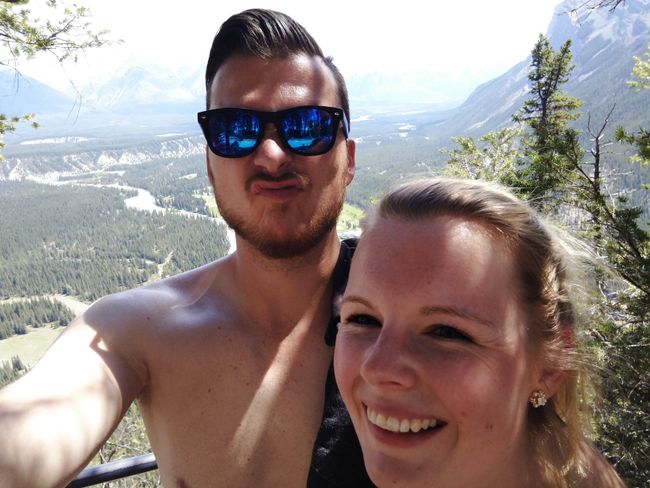
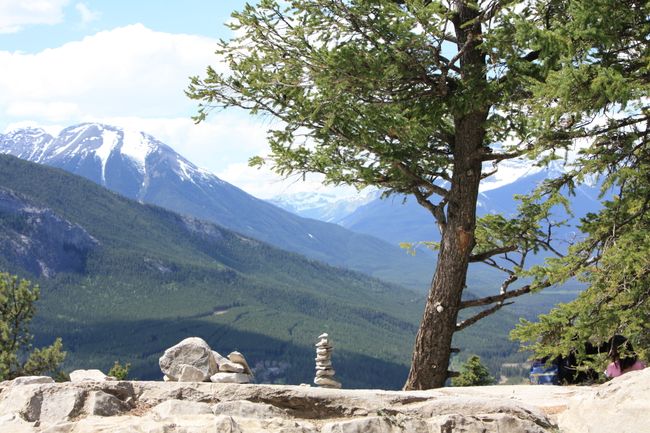
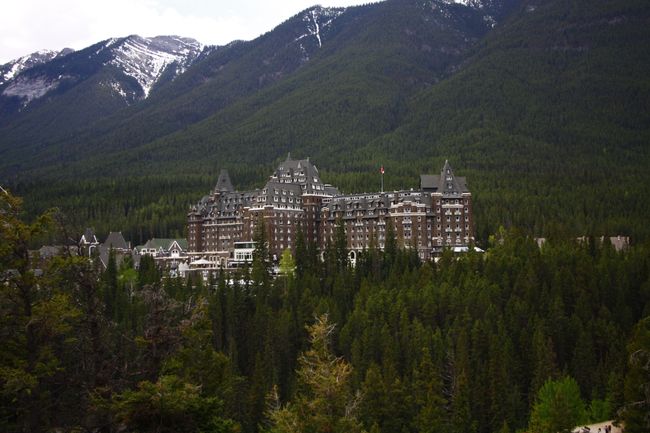
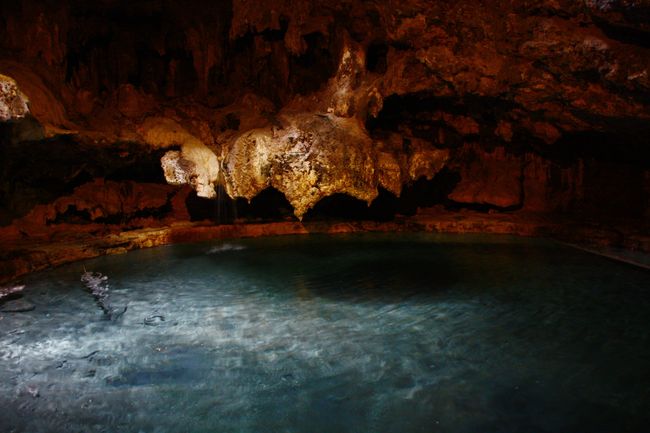
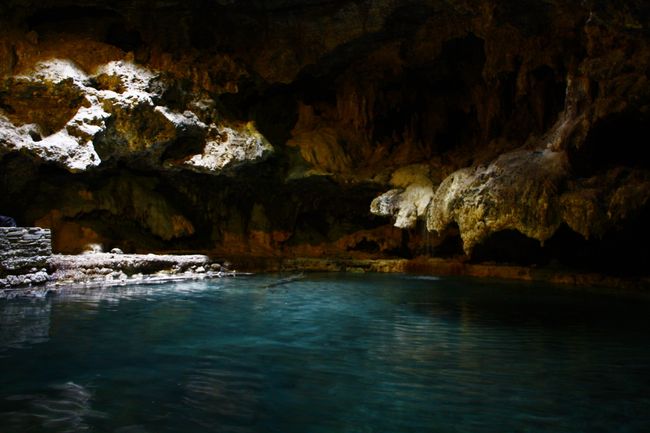
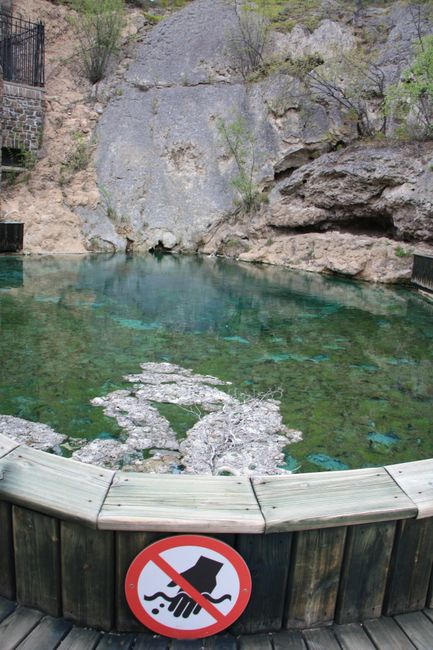
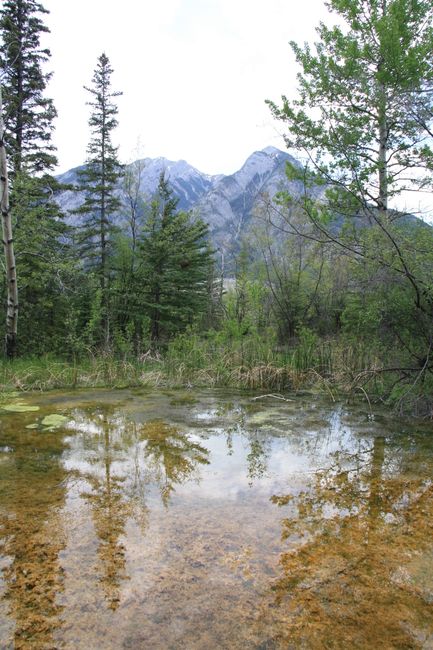
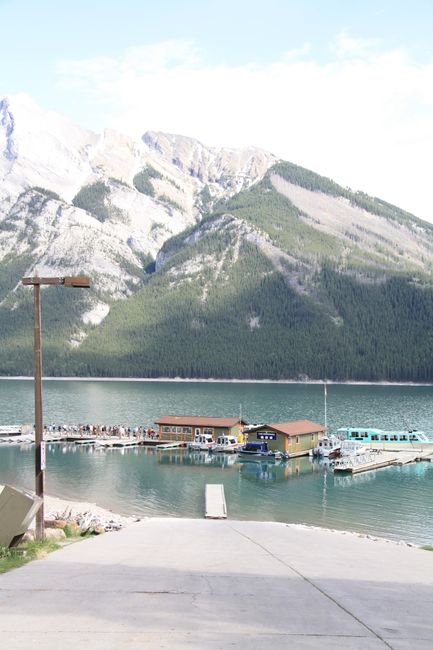
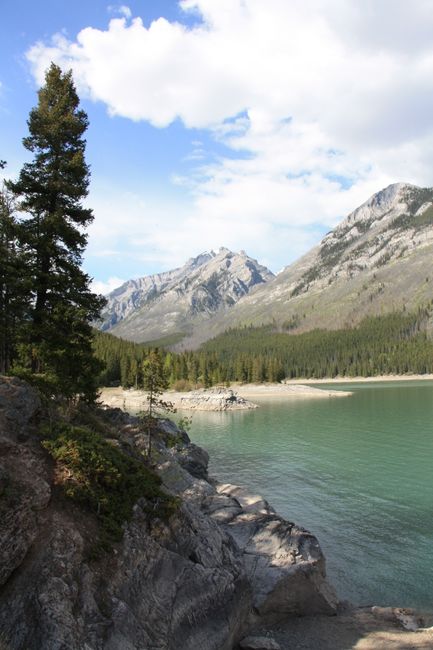
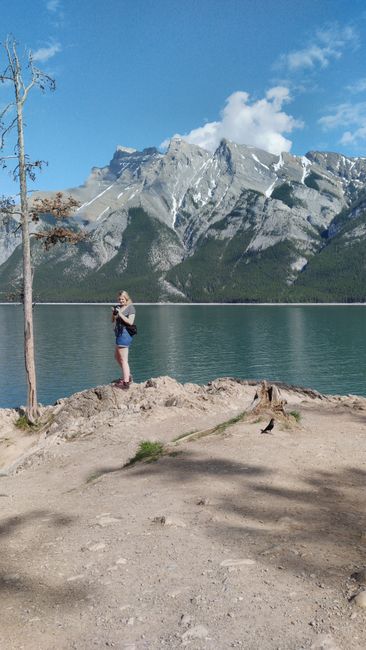
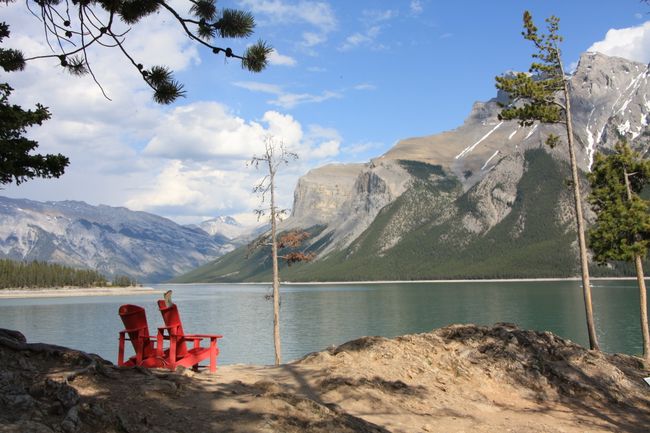
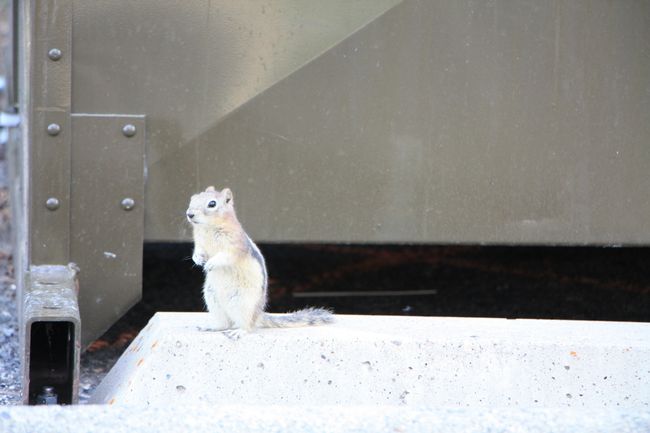
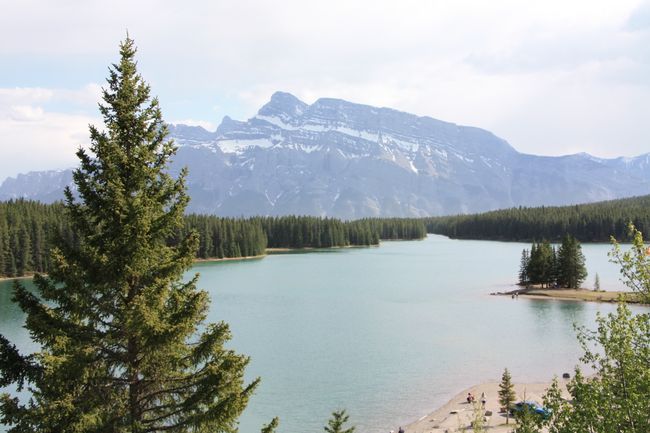
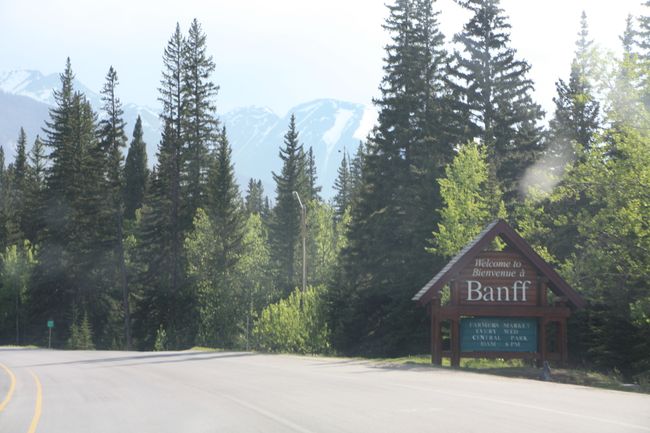
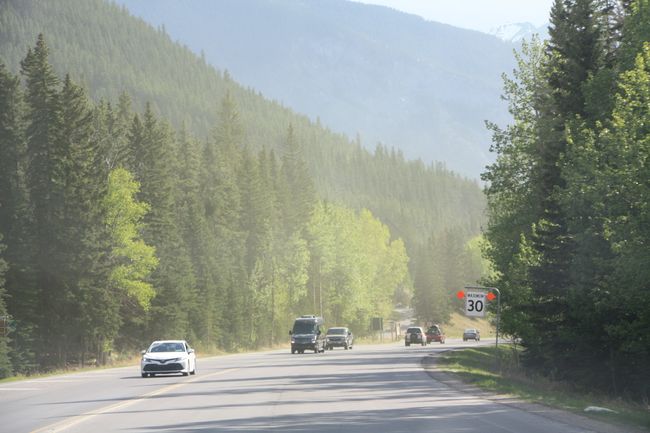
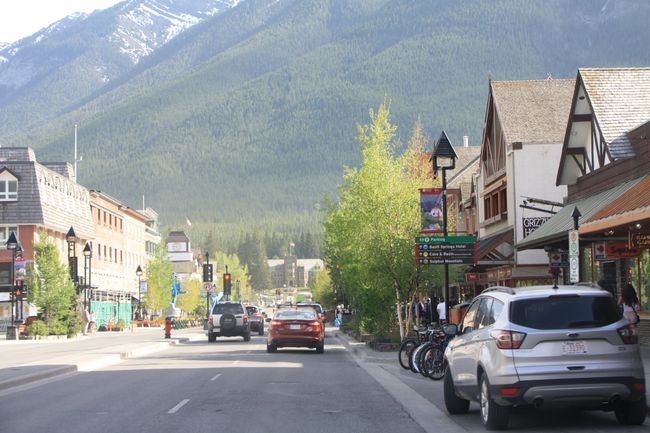
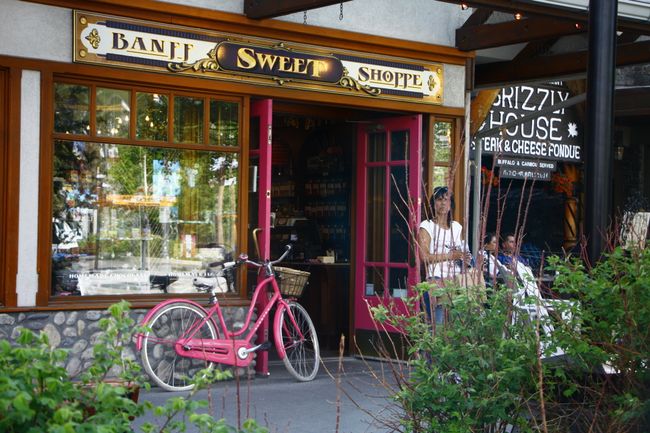
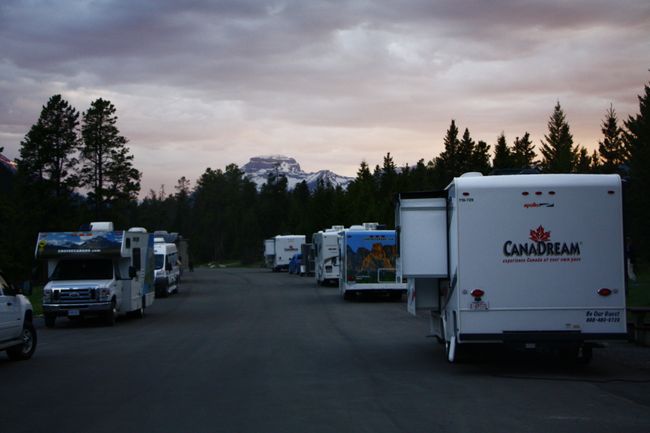
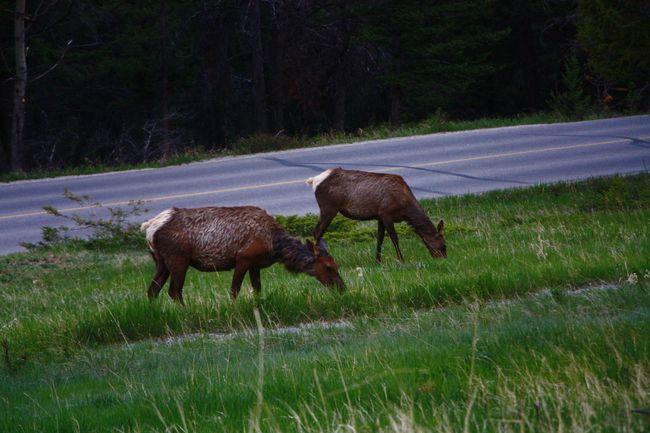
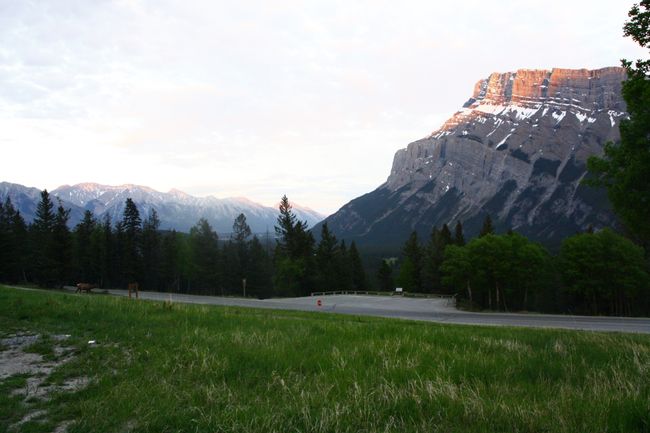
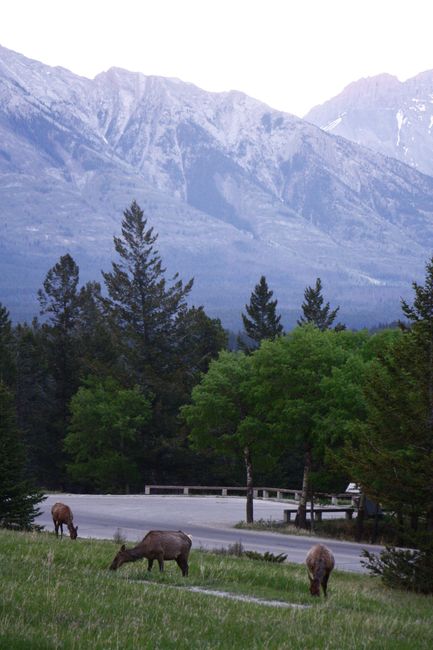
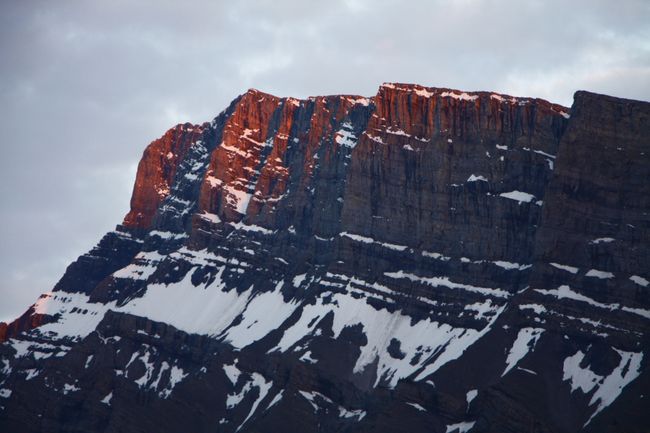
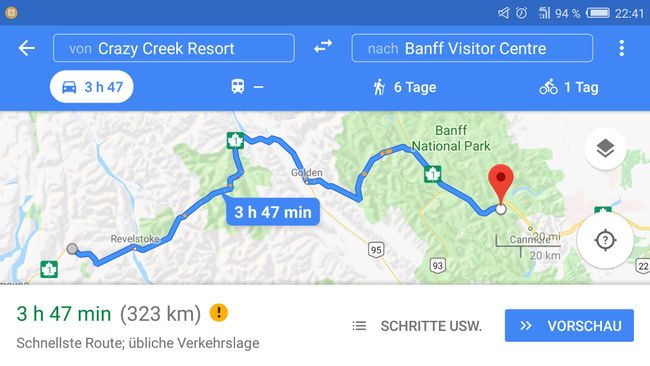
Harpidetu Buletinera
21.05.-23.05.2018 After relaxing and recharging our energy in Crazy Creek, we continued our journey towards Banff National Park. Most of the photos you see of (Western) Canada are actually taken at one of the many incredibly beautiful lakes in this national park.
Let me start by saying that the signage on Canadian roads, and also on American roads (as we would later find out), is a disaster. If attractions are actually signposted, it usually happens in two steps. Step 1: About 20 km before the actual destination, a sign promotes the destination and tells you which exit to take to reach it. Since your attention is focused on the kamikaze drivers around you, you tend to notice such a sign only casually. Besides, there are also beautiful views around you that you don't want to miss. And besides, you also assume that there will be several signs with the same information. Step 2: Only 100 m before the exit you should take to reach your destination, the long-awaited sign with the necessary information actually appears. With a travel speed of 100 km/h or 27.78 m/s, you have only 3 seconds to slow down 2.5 tons of steel and its human contents and steer it in the right direction. In the best case, you even have a hobby race driver on your tail who wants to take a closer look at your pickup truck. If you unexpectedly miss the exit, you simply drive a few more kilometers and turn around. No problem, fuel is cheap.

Despite these difficulties, we managed to reach most of the destinations. The first stop was Emerald Lake and a few kilometers later the Natural Bridge. We had dressed for summer on the morning of our departure...after all, it was warm and supposed to stay that way. Well...in Banff National Park it was still a bit colder. Cold enough for snow to still be lying around. Including at Emerald Lake. We got out of the car, lightly dressed and wearing flip-flops or Adidas sandals, grabbed our camera and trudged through the snow like tourist. Even though it was cold. The view was amazing. A turquoise blue lake shimmered in front of us, surrounded by high, snow-covered mountains. In short: Wow. An incredibly beautiful panorama. No photo can even come close to conveying an impression of it. If it weren't for the busloads of Chinese/Korean/Japanese/Indian tourists who are dropped off one after the other at the attractions, you might actually get an impression of endless vastness and solitude. But most of the time, that's simply not the case. Although the influx from the Far East at Emerald Lake was still bearable. It got worse the next day at Lake Louise. More on that later. After taking a 'few' photos, we made a short stop at the Natural Bridge. A rock formation in a river that, as the name suggests, looks like a bridge. Built not by human hands, but by Mother Nature. Of course, the common packaged tourist studiously ignores all the signs telling them not to step on this naturally created bridge. You don't get awesome pictures for Facebook, Instagram, etc. by following conventional paths. We took our photos the conventional way and then headed towards Lake Louise. Once in the town, we checked out all (five) hotels in search of an affordable room (0 degrees were forecast for the next night), as we were not sure about the insulating capabilities of our canopy. After the search for an affordable accommodation failed, we drove to the namesake lake first. Probably the most famous standing body of water in (Western) Canada. And what we saw was truly astonishing: The lake was 90% frozen. At the end of May. Due to the high peaks that surround the lake, not much sunlight and warmth enter this 'valley'. On this first visit, we were lucky that most of the tourists had already returned to their hotels. It was quiet, cold, Canadian. Before nightfall, we headed into town, got some firewood (hoping to get a fire pit at the nearby campground), and drove to the only campground in Lake Louise. There were still plenty of campsites available, but unfortunately all without electricity and without a fire pit. So we quickly ate something, froze our asses off (despite wearing winter jackets), and bundled up thickly for the night. Surprisingly, it was bearable and we woke up early in the morning in freezing cold without any bear bites.
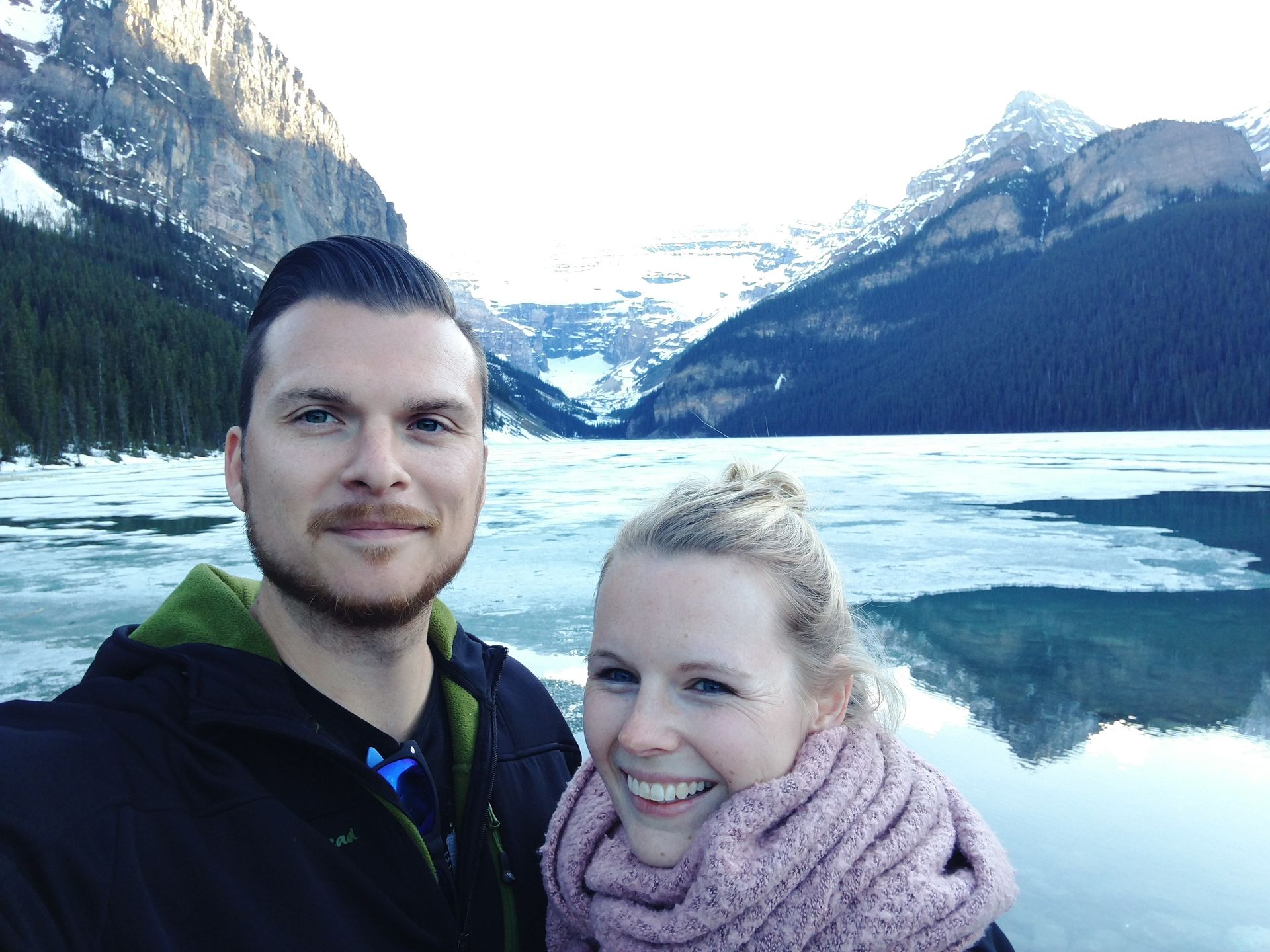
After a quick breakfast and a cat wash, we set off for our second day in Banff National Park. Since the road to Moraine Lake, located above Lake Louise, was closed until the previous day due to an avalanche, and only a few cars per hour were allowed to visit this lake, we went back to Lake Louise. Disaster. The oversized parking lot was full of rental cars and buses. Consequently, many Asian citizens were also strolling around the lake. Consequently, it was also loud. We decided to escape the hustle and bustle and go for a hike in the mountains. Unfortunately, all the hiking trails were covered in snow and ice. And since we're both avid hiking novices, we quickly banished the idea of hiking back into the realm of fantasy. Simply chose the wrong time of year. On the way back down to the valley, we tried our luck again at the entrance to Moraine Lake...unfortunately without success. So we drove to the other side of the valley and took a cable car that took us to the mountains opposite Lake Louise. A great view awaited us with little mass tourism. The advertised bears, which you should see during the chairlift ride, once again hid. Apparently, orcas and brown/black bears have made a pact not to show themselves when we are nearby. Scandalous! We will file a complaint with the relevant bear and whale committee. Be that as it may. After this little expedition, we got back in Jim Bob and tried one last time to gain access to Moraine Lake. This time we were lucky. The lake was also mostly frozen and had little water, so we could walk around on the lake bottom below the actual shoreline. After a short hike, another 1000 snapshots, and a bit of snow in our shoes, we continued our journey towards Banff. Once there, our first priority was to find the local campground to secure a spot for the evening. Since it was a huge area and hardly anyone was there, we got a spot. With electricity, a fire pit/grill, and free firewood. Luxury, man. We quickly drove into town again and got some food that we could grill. Back at the campground, we set up our canopy, started a fire, and ended the evening with sausages on a stick and beer.
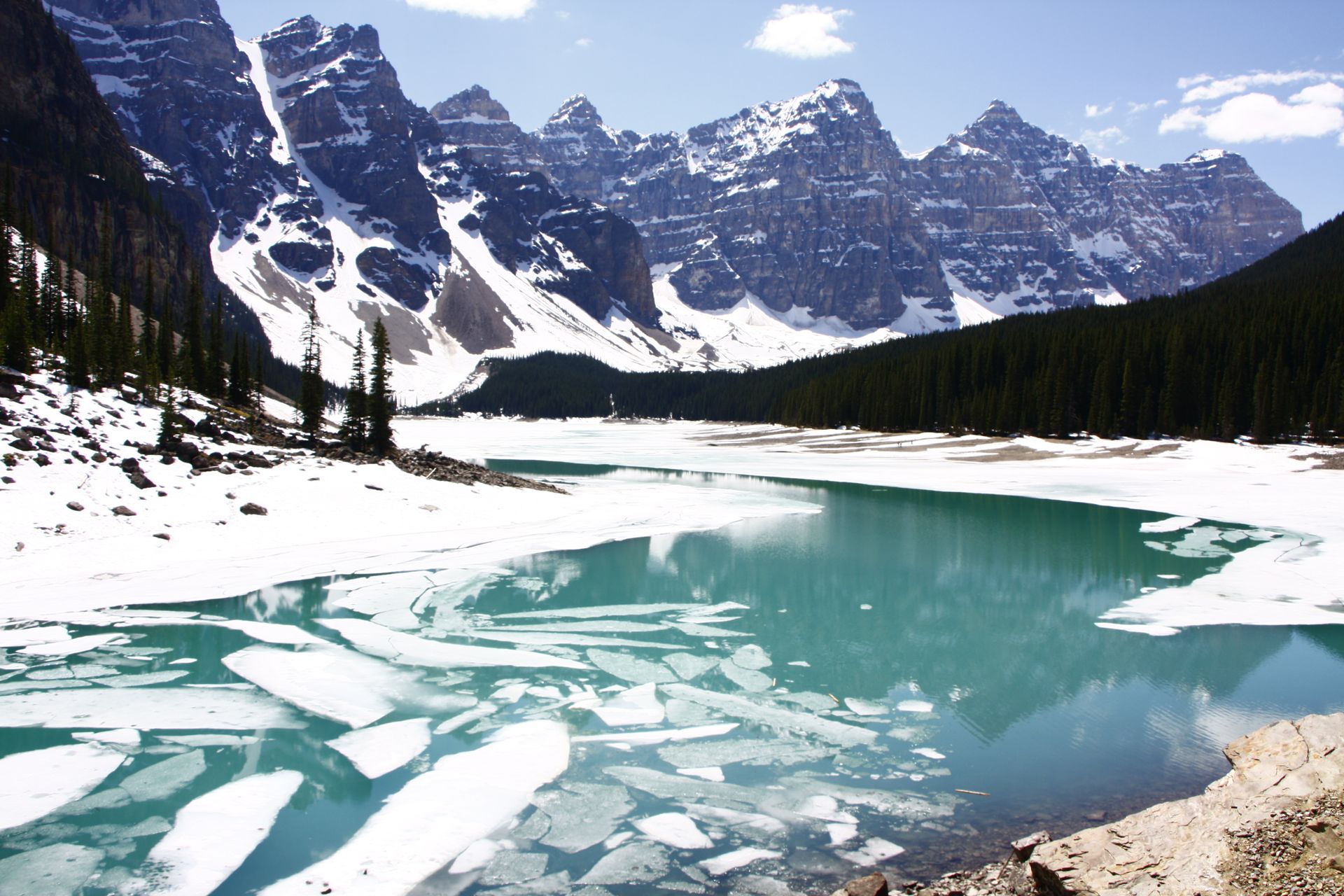
The next morning started a bit hectic. It takes quite some time to get your act together in the morning, have breakfast, take a shower, and pack everything up. And we actually wanted to continue our journey today. At least that was what our schedule said. But the campground and the long evenings (it stayed light until 10:30 pm) convinced us to extend our stay in Banff by one more day and night. After all, we also wanted to explore the surroundings and the town itself a bit. And that turned out to be a good decision. After climbing a mountain (of course in the midday heat) and visiting a waterfall (Yay, a waterfall...we've never seen one before), we drove back to downtown. We got a gas bottle for our gas stove, got a cold drink at a well-known coffee chain, and went to the weekly market. At the market, we discovered a stand run by older Germans from Karl-Marx-Stadt (easy to recognize because of their English: 'Hällo Sör! Hau ahr ju?'). We chatted a bit and bought some delicious German bread (the one and only true bread). We saddled up the horses again and drove to Banff's world-famous sulphur water source (the discovery of which in the 19th century led to the founding of Banff National Park). The Indians used to hold their ceremonies in this pond. After enriching our lungs with some sulphur and our brains with more useless knowledge, we drove to the lake northeast of Banff to spend a few quiet moments on red chairs amidst swarms of mosquitoes and Far Eastern (T)tourists. In the evening at the campground, we grilled again and watched the resident deer grazing. Every day could end like this...
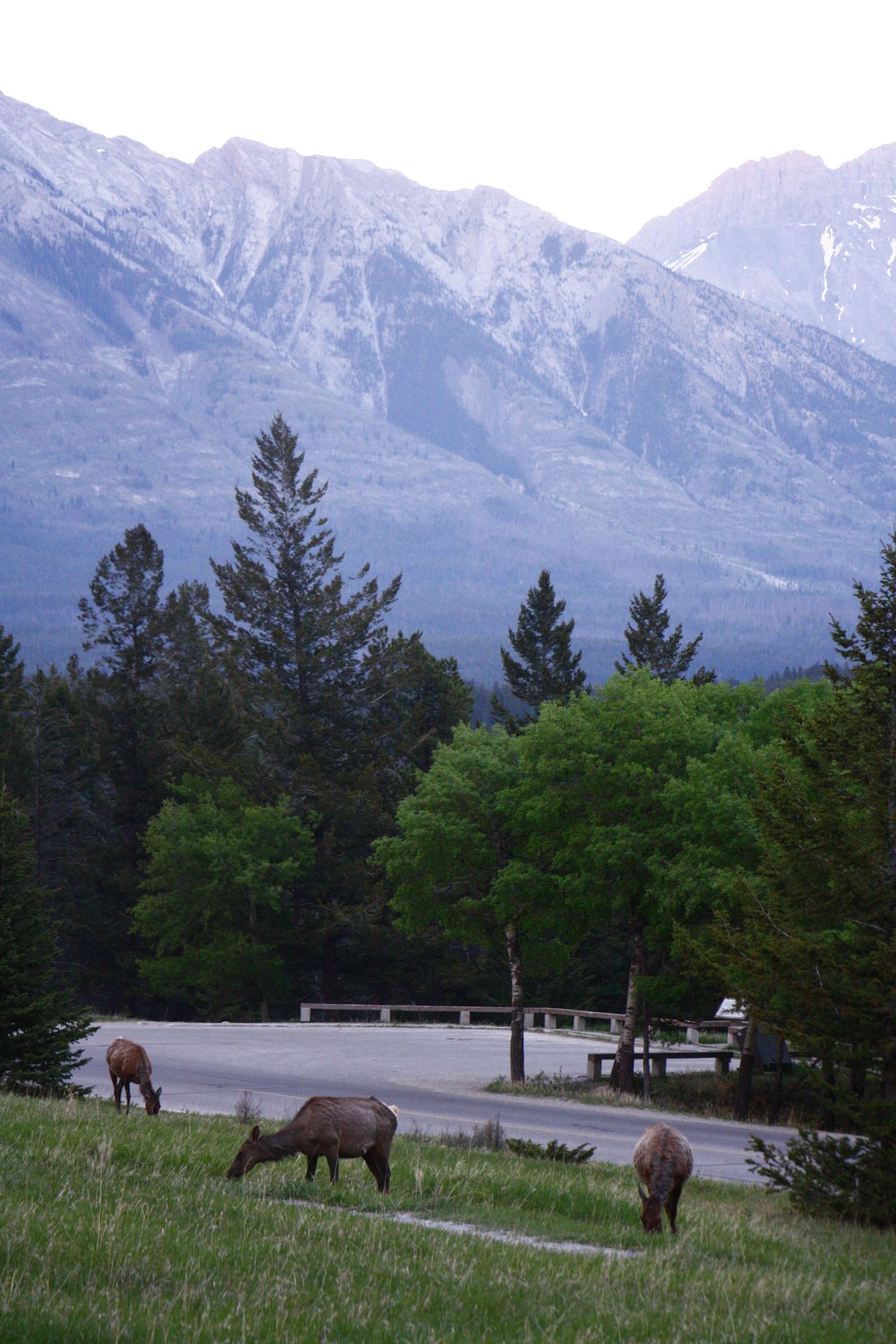
Harpidetu Buletinera
Erantzun
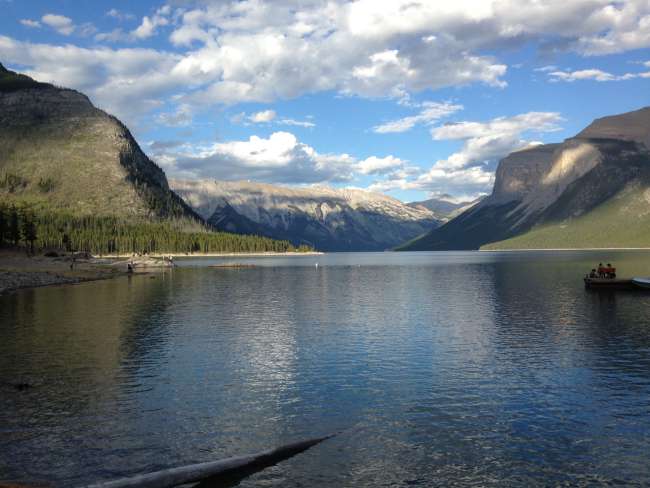
Bidaien txostenak Kanada
